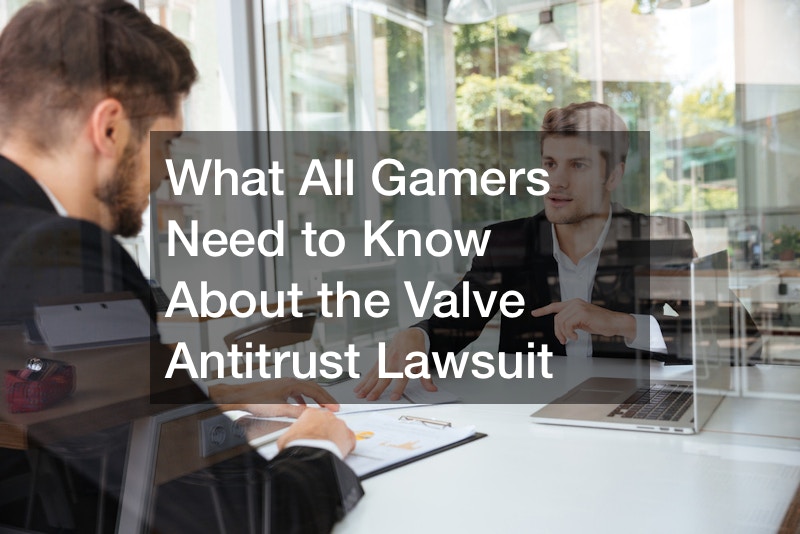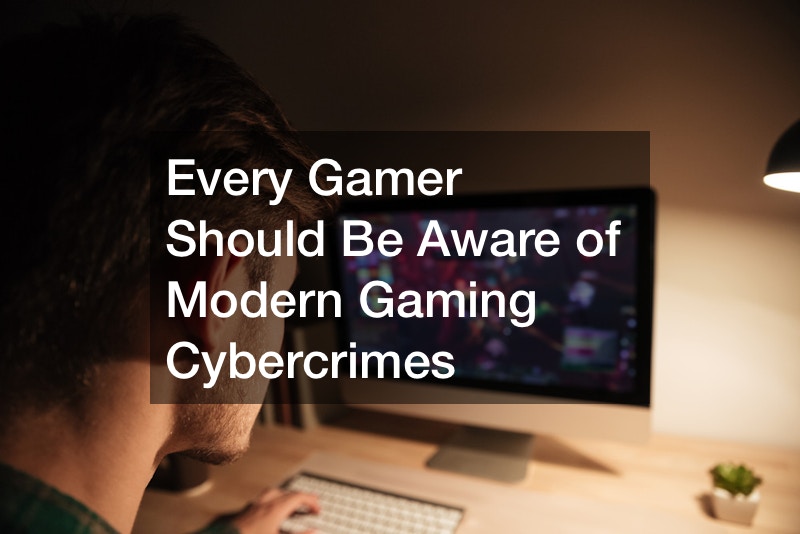The gaming industry has seen a ton of growth over the past few decades, with millions of people around the world embracing video games as a fun form of entertainment. One company that has played a very prominent role in the gaming industry is Valve Corporation, the creator of the very popular gaming platform Steam. However, Valve is currently facing a legal battle in the form of an antitrust lawsuit. In this article, we will delve into the details of the Valve antitrust lawsuit and provide gamers with essential information about the case.
What Is the Valve Antitrust Lawsuit?
The Valve Antitrust Lawsuit is a legal case filed against the renowned video game company Valve Corporation. The case was initiated by various governmental agencies and even consumer advocacy groups. The lawsuit alleges that Valve has engaged in anti-competitive practices which have secured its dominant position when it comes to the digital distribution platform market. The company is the creator and operator of Steam, which is a very popular digital distribution platform for a variety of video games. The company is accused of inflating policies that stifle competition, which in turn harms consumers. The primary focus of the lawsuit is Valve’s alleged abuse of its market power to impose restrictive contractual agreements on game developers and publishers. These agreements supposedly prevent them from distributing their games on competing platforms or offering them at lower prices elsewhere. The last also claims that the company engages in anticompetitive behavior by manipulating the search algorithms and store placement to favor its own products and games. This practice can marginalize other developers and limit the choices that consumers can make. The outcome of the lawsuit is uncertain at this point in time. If the court finds Valve guilty of these anti-competitive practices, the company could face a substantial amount of fines and may be required to alter its business practices to promote more fair competition and better consumer welfare. The case has significant implications for the digital distribution market and is being watched closely by other gaming companies and gamers alike.
Who Is Involved in the Lawsuit?
The Valve antitrust lawsuit involves several parties and each plays a significant role in the legal proceedings. The main parties involved are Valve Corporation, the plaintiff(s), and the regulatory bodies overseeing the case.
In addition to the Valve Corporation, the lawsuit involves the plaintiffs, which include individuals, consumer advocacy groups, and other companies that are directly affected by Valve’s alleged anti-competitive behavior. These parties are the ones that filed the suit against the company and they are seeking legal remedies while saying that the company’s practices have violated antitrust laws.
Government regulatory bodies are also involved in the lawsuit, which includes the Federal Trade Commission, also known as the FTC, in the United States and the European Commission of the European Union. Both these government agencies oversee antitrust laws and investigate any potential violations. They are both playing a critical role in initiating legal action against Valve as well as conducting investigations and representing the public’s best interest in ensuring fair competition while protecting consumers.
The lawsuit also involves a variety of legal teams. Those teams include the law firms representing both Valve and the plaintiffs. These lawyers will argue the case in court, present evidence, and advocate for each of their client’s best interests. A judge will preside over the case and he or she is responsible for making legal determinations and issuing judgments based on the evidence and arguments that are presented during the court hearings.

How Can Valve Defend Their Case?
Valve can use several strategies to defend its case if faced with legal challenges or controversies. These can include meticulously reviewing and reinforcing their contracts with game developers to ensure that their terms are clear and legally binding. This could help protect the company from claims related to intellectual property infringement or breach of contract. The company’s defense attorney can also prioritize user agreements in which the company can outline the rights and responsibilities of its users. This can help safeguard them from potential lawsuits or disputes. Defense attorneys can also emphasize platform neutrality and argue that an open platform is provided where various developers can distribute their games.
Does Valve Have a Monopoly?
Valve Corporation, the renowned video game developer and distributor, has undeniably made a significant impact on the gaming industry with its digital distribution platform Steam. However, it is debatable whether Valve possesses a true monopoly in the market. While Steam dominates the digital gaming distribution space, boasting a vast library of titles and a substantial user base, it faces competition from other platforms, such as Epic Games Store, GOG, and Origin. These platforms offer alternatives to gamers and developers, which challenges Valve’s market share. Also, the rise of cloud gaming services, such as Google Stadia and Microsoft’s Xbox Game Pass, introduces another dimension of competition that diversifies the market further.

How Much Can Gamers Expect to Get Paid?
Debt negotiation with Valve does not typically involve direct payment to gamers. Valve’s financial transactions are primarily focused on game purchases and sales, rather than compensating individual gamers. However, there are certain scenarios where gamers may be entitled to refunds or compensation.
The outcome of the Valve anti-trust lawsuit could potentially have a huge impact on gamers and their compensation. If the plaintiffs win the case, it could lead to changes in the gaming industry and potentially result in monetary benefits for gamers.
In an anti-trust lawsuit, if the court finds Valve guilty of anti-competitive practices, it may impose penalties and financial restitution. The amount that gamers could expect to receive as compensation would depend on an array of different factors, such as the number of affected individuals and the extent of damage caused by Valve’s actions.
Potential compensation will be determined by the court and legal proceedings if the plaintiffs win the lawsuit against Valve. However, the plaintiffs might receive compensation in the form of monetary damages, refunds, or other remedies aimed at addressing the harm caused by Valve’s alleged anti-competitive behavior if the company is found to be guilty of these practices.
Is this a Class Action Suit?
The question of whether the Valve Lawsuit case qualifies as a class action suit depends on the specific circumstances and legal framework surrounding the case. A defective products attorney may be able to answer this question better but at this point, the lawsuit against the Valve Corporation does not really fit the criteria of a class action lawsuit, although one could be filed right away if Valve loses the case.
A class action suit typically involves a group of plaintiffs who collectively bring a claim against a defendant on behalf of a larger class of individuals who have similar legal grievances. The Valve Lawsuit case could potentially meet the criteria for a class action suit if there are multiple individuals who have suffered similar harm or damages due to Valve’s actions or policies.

Why the Suit Is Worthwhile
The suit against the Valve Corporation is undoubtedly worthwhile due to several significant reasons. First of all, the Valve Corporation holds a very dominant position in the gaming industry with its widely popular platform, Steam. This means that any legal action against Valve has the potential to impact millions of gamers and reshape industry practices. By holding Valve accountable for any alleged wrongdoing, the suit aims to ensure fair competition, protect consumer rights, and maintain a level playing field within the gaming market.
The suit seeks to address potential anti-competitive practices by Valve. Given its market dominance, Valve may have the ability to engage in practices that stifle competition and limit consumer choice. If proven, such behavior can have adverse effects on innovation, pricing, and access to games, which can hurt consumers. The suit provides a good opportunity to scrutinize Valve’s business practices, promote transparency, and encourage a more competitive environment, ultimately benefiting both developers and consumers.
Also, the lawsuit has the potential to set legal precedents and establish clearer guidelines for the entire gaming industry. As technology evolves, legal frameworks need to adapt to the changes to ensure the protection of consumer rights and foster fair business practices. By pursuing legal action against Valve, who is represented by a criminal law attorney, the suit can contribute to the development of jurisprudence in the gaming sector, providing a framework for future cases and promoting a healthier and more accountable gaming industry.
How All Gamers Can Get Involved in the Lawsuit
The Valve Lawsuit case has garnered a ton of attention within the gaming community, and it’s crucial for all gamers to understand how they can get involved. This lawsuit, which alleges anti-competitive practices by Valve, presents an opportunity for gamers to voice their concerns and help shape the future of the gaming industry.
Gamers should definitely keep up with the happenings of the case and stay informed. They should do this by following reputable news sources, industry experts, and legal updates to gain a comprehensive understanding of the case. This will help them to make informed decisions and contribute effectively.
Engaging with others in online communities that are dedicated to the gaming industry is another great way for gamers to stay in touch with the case. By joining in on discussions and sharing their insights, awareness can be raised and gamers can collectively amplify their voices and support their cause. This can be done through online forums, social media groups, and even gaming-related platforms. Gamers can also check the information put out by a legal marketing service associated with the case.

What to Expect from the Case Timeline
From accountants on both sides of the Valve lawsuit case to the attorneys involved, no one can really predict the entire timeline of the lawsuit. It was filed in 2021 but lawsuits of this type can be carried out over several years. This is due to the wealth of information and the weight of all the evidence that needs to be involved in the case as well as witnesses and other aspects. The Valve Corporation filed to have the case dismissed in 2022 but that was denied, so the case continues on. Gamers and others who are interested in the case can keep up with it from local news sources as well as online forums.
How to Support Indie Game Developers in the Meantime
Supporting indie game developers is a great way to contribute to the growth and success of the gaming industry while awaiting the outcome of the Valve Corporation lawsuit case. There are several ways you can support independent game developers. One of the most direct ways to support indie game developers is by purchasing their games. Look for indie games on platforms like Steam, GOG, or the App Store and consider buying their titles. Your financial support can have a significant impact on their ability to continue creating games. You should also spread the word and help generate awareness about indie games. You can do this by sharing information about them in forums online, in gaming communities, and on social media platforms. You can write reviews of indie game developers’ games and even create gameplay videos and recommend them to your friends. Positive word-of-mouth information goes a long way and can very much benefit indie developers who rely mostly on grassroots marketing. You can always tell support crowdfunding campaigns that are created by indie game developers on platforms like Indiegogo or Kickstarter.
It is also important to bring constructive feedback to indie game developers about their games carrying can you help them improve their kingdoms and to better understand what their players want and what they would like to see changed. You can also go to gaming conventions and other events to support indie game developers.
It is a good idea for gaming developers to incorporate 3PL inventory management software that can be beneficial when it comes to handling their physical inventory. This software can also streamline their inventory management while helping with order fulfillment and shipping.
Overall, the Valve Lawsuit may be stressful for some but the outcome will hopefully be a positive one for the gaming industry as well as the gamers who love to play the games.



